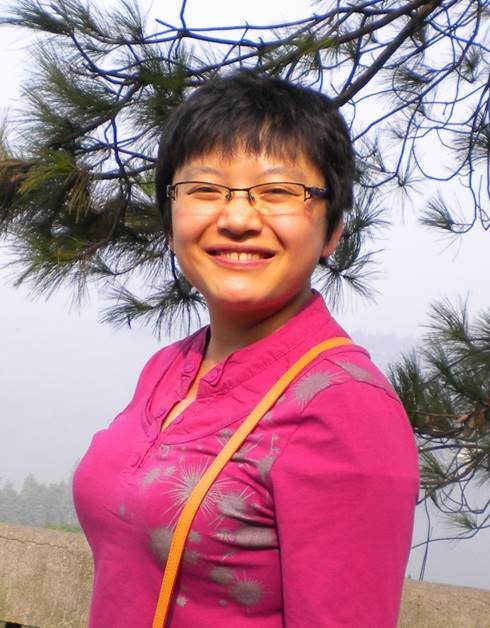
Xiaofang Zhang, M.D., Ph.D.
Dr. Zhang is currently adeputy chief physician in department of pathology. She graduated from Shandong University in 2009. Since 2009, she has devoted herself to the research of multidrug resistance in cancer and has successively undertaken one project of the National Natural Science Foundation of China, one project of the Shandong Natural Science Foundation, two projects of the China Post-doctoral Foundation and one project of independent innovation of Shandong University. Based on the above research, five papers were published by the first author in SCI journals, with an impact factor of about 18.6 points. She also undertakes the clinicopathological diagnosis of Qilu Hospital. The main sub-specialties are gynecological pathology and thyroid pathology.
BIOGRAPHICAL SKETCH |
|
NAME Xiaofang Zhang |
POSITION TITLE deputy chief physician |
eRA COMMONS USER NAME |
EDUCATION/TRAINING(Begin with baccalaureate or other initial professional education, such as nursing, and include postdoctoral training.) |
INSTITUTION AND LOCATION |
DEGREE (if applicable) |
YEAR(s) |
FIELD OF STUDY |
Shandong University, School of Medicine, China |
Ph.D. |
2009 |
Pathology |
Shandong University, School of Medicine, China |
M.D. |
2004 |
Clinical Medicine |
|
|
|
|
|
Employment
2009 – 2017 Lecturer, Department of Pathology,Shandong University, School of Medicine, China
2018 – Deputy chief physician, Department of Pathology,Shandong University, School of Medicine, China
Honors and Awards
None.
Research Fundings
1. “Study on the mechanism of estrogen up regulating glucoceramide synthetase and inducing multidrug resistance in breast cancer”. National Natural Science Foundation of China, 81502279, 2015
2. “First exploration of the relationship between BCRP and GCS in multidrug resistance of breast cancer”. Shandong natural science foundation project, ZR2012HQ019, 2012
3. “Study on the mechanism of GCS elevated-expression after neoadjuvant chemotherapy in breast cancer”. 48th projects of China Postdoctoral fund.2010
Books
1. Thyroid FNA cytology differentiation diagnosis and pitfalls (Chinese version), 2018
2. Experimental course of pathology and pathophysiology, 2017
Selected Peer-Reviewed Publications
1.Liu JN;Xiaofang Zhang(*);Liu A;Zhang DP;Su Y;Liu Y;You D;Yuan LL;Kong XS;Wang XD;Sun P. Altered methylation of glucosylceramide synthase promoter regulates its expression and associates with acquired multidrug resistance in invasive ductal breast cancer. Oncotarget. 2016 Jun 14;7(24):36755-36766.
2.Zhang X(*);Wu X;Su P;Gao Y;Meng B;Sun Y;Li L;Zhou Z;Zhou G. Doxorubicin influences the expression of glucosylceramide synthase in invasive ductal breast cancer.PLoS One. 2012;7(11): e48492. doi: 10.1371/journal.pone.0048492. Epub 2012 Nov 2.
3. Wu X;Zhang X(*);Sun L;Zhang H;Li L;Wang X;Li W;Su P;Hu J;Gao P;Zhou G.Progesterone negatively regulates BCRP in progesterone receptor-positive human breast cancer cells.Cell Physiol Biochem. 2013; 32(2):344-354. doi: 10.1159/000354442. Epub 2013 Aug 14.
4.Zhang X(*),Wu X, Li J, Sun YL, Gao P, Zhang C, Zhang H, Zhou G. MDR1 (multidrug resistence 1) can regulate GCS(glucosylceramide synthase)in Breast Cancer Cells.J of surgical oncology. 2011;104(5):466-471
5.Zhang X(*),Li J, Qiu Z, Wu X, Gao P, Zhou G .Co-suppression of MDR1 (multidrug resistence 1) and GCS (glucosylceramide synthase) restores sensitivity to mutidrug resistance breast cancer cells by RNA interference (RNAi). Cancer Biol Ther. 2009; 8(12): 1117- 1121.
Teaching Courses
1. Pathology
2.Introduction to morphology
Contact Information
1. Address: Room 6138, Research Building No. 6
2. Phone Number: (0531) 88382574
3. E-mail: xiaofangzhang@sdu.edu.cn






